The events season is in full bloom with many exciting happenings forthcoming soon! Allegra has, once again, curated a carefully selected list of conferences, workshops (and more) that await your participation, either as a presenter or a listener.
The early birds among you shouldn’t miss the opportunity to register for the Atmospheres conference (1-2 July 2015, The University of Manchester) at a discounted rate until 31 May 2015. Or how about getting a ticket to Beyond Perception 15 (1-4 September 2015, Aberdeen), a symposium addressing Tim Ingold’s work over the last fifteen years since the publication of his seminal book The Perception of the Environment in 2000 (Early bird fees until 1 July 2015). The possibilities are endless!
And don’t forget to contact Andrea @ andreak@allegralaboratory.net if you would like your event to be featured on our monthly list or simply to appear on our home page calendar. Short reports on symposiums, workshops, panels and conferences are also warmly welcome!
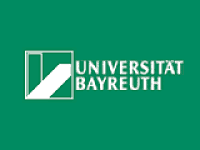 International Workshop: Beauty and the norm: debating standardization in bodily appearance
International Workshop: Beauty and the norm: debating standardization in bodily appearance
6 – 8 April 2016, Iwalewahaus & University of Bayreuth, Germany
This workshop aims at bringing together ethnographic and conceptual approaches to the study of beauty and the norm from social anthropology, queer studies, gender studies and disability studies in order to debate standardization in bodily appearance. The conveners invite contributions that engage with ethnographic methods in their research in a variety of geographical locations, addressing one or more of the following questions:
-
What is the relation between beauty practices and the norm?
-
Are there ethnographic indications for rising standards of bodily appearance and in what ways are these related to ideologies of race,
-
class, age and gender?
-
What happens with people whose bodies defy or are found lacking in reference to what is considered an ordinary appearance?
-
What does the increasing consumption of aesthetic body modifications mean for the particularities of our bodies, our everyday lives as well as
-
for the ways we determine what is good, beautiful, healthy and “normal”? [more]
Deadline for submission of abstracts: 5 June 2015
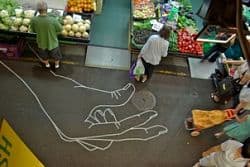 Conference: Creative Labour(er). Anthropological Perspectives on the Work of Art
Conference: Creative Labour(er). Anthropological Perspectives on the Work of Art
8 June 2015, King’s College, University of Cambridge, UK
Keynote: Georgina Born (Music/Anthropology, Oxford)
This one-day international conference interrogates the relation between contemporary artistic production and postfordist labour relations. How do artists work today? As an Anthropologies of Art (A/A) Network research event, the conference also seeks to map out a range of contemporary approaches to a wider set of questions:
-
What can anthropological analysis contribute to understanding the changing nature of labour, flexibilisation, and the entrepreneurial subject?
-
In what ways do freelance artists reflect or perpetuate flexible working conditions?
-
What are the distinctions between artistic self-making and artistic self-marketing?
Contributors from France, The Netherlands, Germany, and the UK will be discussing case studies addressing artistic production in music, law, film, theatre, and visual art.
Please contact Jonas Tinius (Anthropology, Cambridge) to register at jlt46@cam.ac.uk
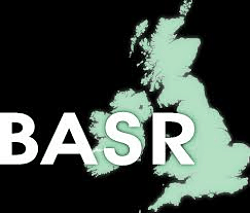 British Association for the Study of Religion
British Association for the Study of Religion
Annual Conference (#BASR2015):
Religion in the Local and Global: Interdisciplinary Perspectives and Challenges
7 – 9 September 2015, University of Kent, UK
In an age of global interconnection what counts as religion is being redefined and is under increasing scrutiny. It is now impossible to conceive of the global-political without attention to the religious-secular, the increasing tension between the local and trans-national and new modes of community and religiosity. Cultural habits, individual identity, social structures, philosophical categories and economic exchanges are all being transformed by a new sense of time, space and interconnection.
The conference will explore the theme of Religion in the Local and Global across a range of disciplinary perspectives, including religion, politics, anthropology, sociology, psychology and philosophy. The aim is to bring together a range of disciplinary perspectives on the study of religion to explore the local/global challenge to conventional assumptions about religion, both in empirical and theoretical perspectives. Each perspective seeks to set up a challenge to how different ways of thinking about religion are determined by interlocking global and local issues, concerns and social realities. [more]
Deadline for submission of papers and panel proposals: 15 June 2015
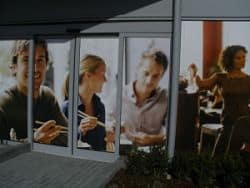 Training Course: Digital Video Production for Anthropologists and Social Researchers
Training Course: Digital Video Production for Anthropologists and Social Researchers
Next course: 20 – 21 June 2015, London, UK (more dates available)
The course strives to provide all participants with a solid foundation of practical knowledge and a working understanding of digital cameras, sound recording, interview techniques, filming on location and industry language.
The conveners aim to instil participants with the confidence to use a wide range of equipment and we teach “future proof” principles of filmmaking which remain constant despite changes in technology and formats. [more]
Please complete the Booking Form to reserve a place on this workshop.
 Queer Devices: A European Network for Queer Anthropology Workshop
Queer Devices: A European Network for Queer Anthropology Workshop
11 – 13 September 2015, Central European University, Budapest
The European Network for Queer Anthropology (ENQA) is pleased to announce its first workshop. The aim is to offer a space for participants to present and explore work foregrounded in anthropological epistemologies and ethnographic methodologies, and which has sexual and gender diversity and difference, broadly conceived, as a central theme. In so doing the workshop will open up a discursive and reflexive space in which to critically engage with and further debates, especially by providing an argument for (1) the importance of both ethnographically grounded and post-ethnographic, theoretically inflected approaches in queer studies, and (2) of relativizing ‘Western’ paradigmatic knowledge regimes in the study of gender and sexual diversity. [more]
Deadline for submission of papers: 29 June 2015
 SYLFF workshop: People, Spaces, and Identities in Movement
SYLFF workshop: People, Spaces, and Identities in Movement
25 August 2015, University of Helsinki, Finland
This multidisciplinary workshop discusses and examines changes and movements in space (understood in both physical and conceptual terms). In particular, it is interested in concept of “movement” – including the ability to move and not to move – and its application to different research topics, such as changing identities in a society, or the actual movement of people and/or ideas from one place to another. The conveners welcome papers that not only address the modern world from the perspective of the social sciences, but also literature studies, historical studies and linguistic studies are also welcome. The presentation of work in progress is also encouraged. [more]
Deadline for submission of papers: 30 June 2015
 Conference: Corpses, Burials and Infection
Conference: Corpses, Burials and Infection
4 – 5 December 2015, CRASSH, Cambridge, UK
It has become a truism to state that in times of epidemic infection, the bodies of the dead become morally, ontologically, and infrastructurally problematic. Nowhere has this been better demonstrated than in the recent Ebola outbreak in West Africa, when burials and the handling of corpses became arenas of contestation through which both local and scientific ‘cultures’ were placed on trial.
Historically, burials and the treatment of human corpses in the time of epidemics have become sites of obvious and apparent contestation. Examples include issues of profanity during the “Plague of Athens” (430BC); allegations of the catapulting of infected corpses in the Middle Ages; Defoe’s descriptions of the breakdown of burial norms during the London Plague of 1665; colonial concerns over “body dumping” in the streets of fin de siècle Hong Kong, and the Pasteurian problematisation of Malagasy reburial rites as a mode of spreading plague in modern Madagascar. Furthermore, burial grounds and plague pits serve not only as condensed spaces of cultural heritage, but are increasingly approached as biological archives (aDNA).
This conference will expand the discursive space that such narratives have created, by asking; how can we problematize the perception and treatment of corpses in situations of infectious disease outbreaks? How can we denaturalize burial as an obvious space of political and ethical contestation? [more]
Deadline for submission of papers: 1 July 2015
Conference: 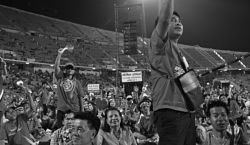 Responsibility and Scholarship in the Current Political Moment
Responsibility and Scholarship in the Current Political Moment
25 – 26 September 2015, University of Colorado, Boulder, USA
Anthropology is in a moment of creative rupture, redefinition, and profound possibility, and it is the task of the next generation of cultural anthropologists – particularly graduate students – to rethink the potentials of our work. While contemporary anthropologists engage with a multiplicity of theoretical perspectives and paradigms, there is still coalescence around a common commitment to ethnography.
In this conference, the conveners aim to conceptualize the current political moment and possibilities for an engaged anthropology by bringing together graduate students thinking through the disciplinary potentials in their own research projects. Now is a time that can be variously characterized by social unrest, insecurity, and inequality across the globe, but also by possibility, connection, and social change. What responsibilities do we as anthropologists have to people engaged in struggles for justice? How can our deep ethnographic knowledge about complex social issues speak to the public and respond to current issues in a timely way? How do the politics of our situated locations as graduate students inform ethical commitments and obligations to the people with whom we work? If ethnography remains our central commitment as a discipline, how can we tell stories that are compelling and at the same time make sophisticated intellectual claims that do justice to the complexity of people’s social worlds? [more]
Deadline for submission of abstracts: 1 July 2015


